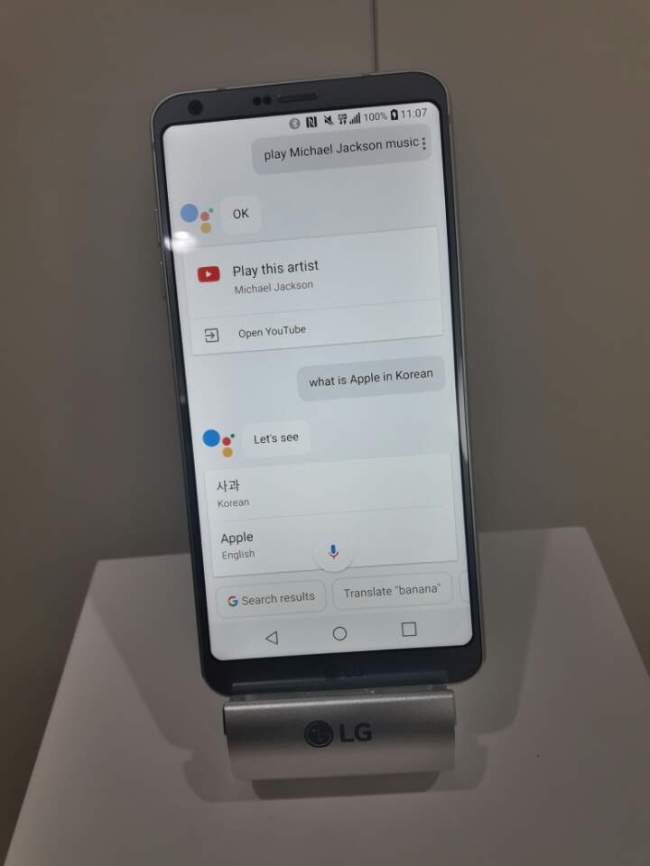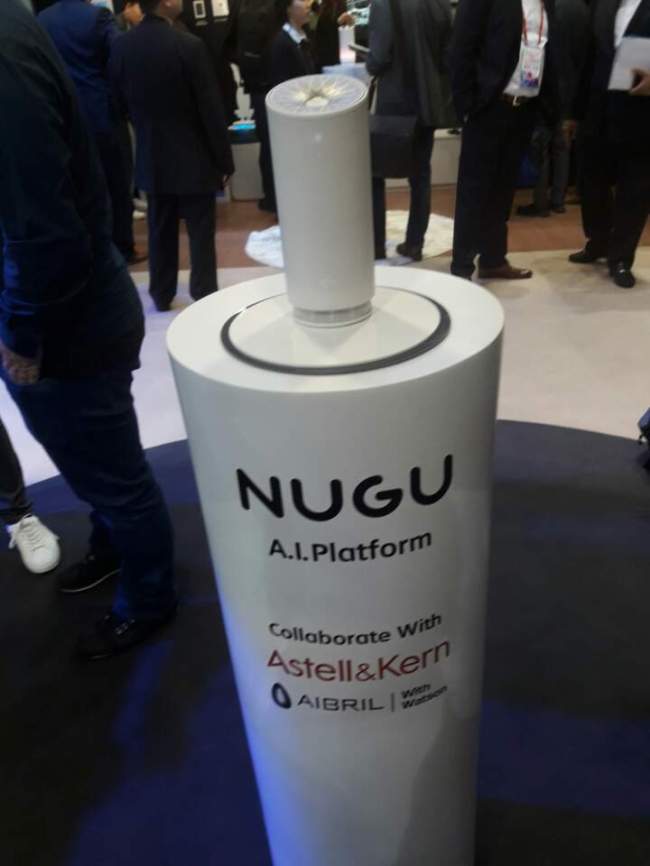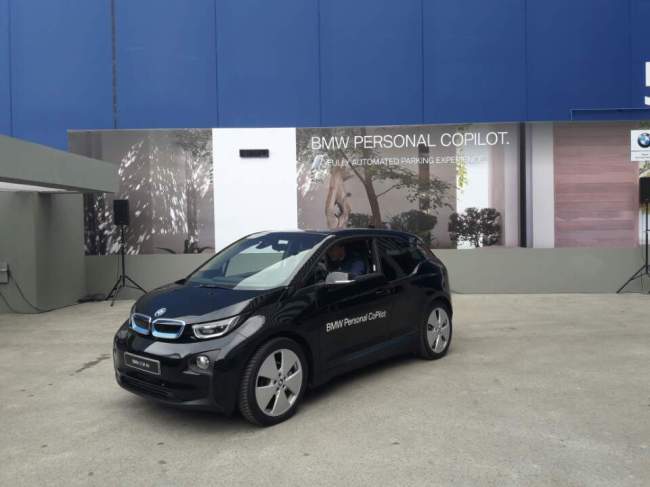Artificial intelligence that made headlines last year with Google’s AlphaGo is again in the spotlight at Mobile World Congress by being integrated into daily routines through handsets, robots and cars.
Tech firms showcased their latest gadgets at the MWC, which kicked off with the keynote speaker SoftBank Group chief executive Masayoshi Son saying, “Artificial intelligence will be smarter than the human brain within 30 years.”
LG Electronics moved into the limelight at this year’s tech event by outpacing its rival Samsung in revealing its newest smartphone G6, the first non-Google phone to support the Google Assistant, an AI-based voice assistant.
With the adoption of machine learning — the ability to learn without being explicitly programmed — the AI assistant makes its smartphone smarter the more one uses it, the company said.
LG set up a separate room to demonstrate its Google Assistant and how it can be connected to other devices like a smartwatch. When one visitor vice commanded the smartwatch play Michael Jackson, the music was played through the G6 smartphone connected to the watch.
A LG official said, “The Google Assistant, with its open platform, can be further connected with other products like home appliances in the future.”
 |
| LG G6′s Google Assistant (The Korea Herald/Shin Ji-hye) |
Korean telecom operator SK Telecom also showcased its AI-powered speaker NUGU alongside some home robots made in partnership with local tech companies Future Robot and IPL.
NUGU was demonstrated in English during the event in partnership with IBM’s question-answering computer system Watson. Other robots ran only in Korean language.
Visitors paid keen attention to how NUGU worked, giving out such commands in English as ”tomato spaghetti recipe,” to which the speaker correctly recited the instructions.
Ernst-Joachim Steffens, research director at Deutsche Telekom, said he tried several robots at the event.
“In Germany, we don’t have such home robots although we do have many industrial robots. I want to buy it if the price is affordable,” he said.
 |
| SK Telecom’s NUGU (The Korea Herald/Shin Ji-hye) |
German automaker BMW, meanwhile, demonstrated its connected car technology outside the main hall in partnership with chipmaker Intel.
When an employee wearing a smartwatch made a gesture, the car parked in a garage moved backward for a driver to get in. It was possible as the sensors in the car can detect objects in its surroundings, according to the firm.
BMW’s autonomous driving technology is expected to be further developed through Intel’s 5G-ready solution platform when the 5G network is fully ready by 2020, it added.
Intel said it will deploy machine and neural learning technology to help the car “think” via cloud.
For instance, if there is a dog standing in front of the car, it will recognize it as a dog because it has the capability to recognize the type of an object and make an instant decision.
“The more the car is used on the road, the car becomes smarter as it collects more data and learns more realistic scenarios even car designers haven’t thought of,” Rob Topol, general manager of Intel’s 5G business and technology unit, told The Korea Herald.
 |
| BMW Connected car (The Korea Herald/Shin Ji-hye) |

